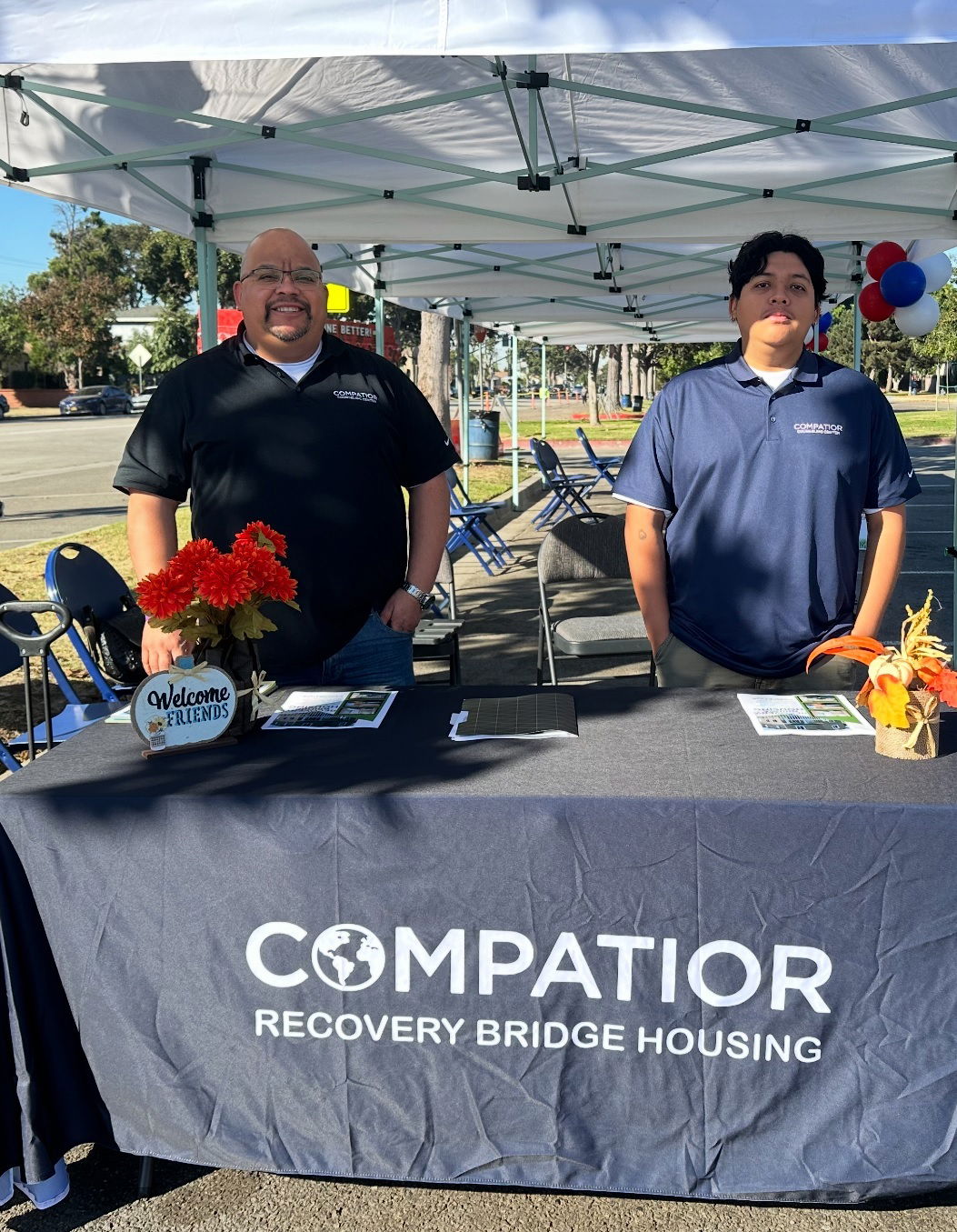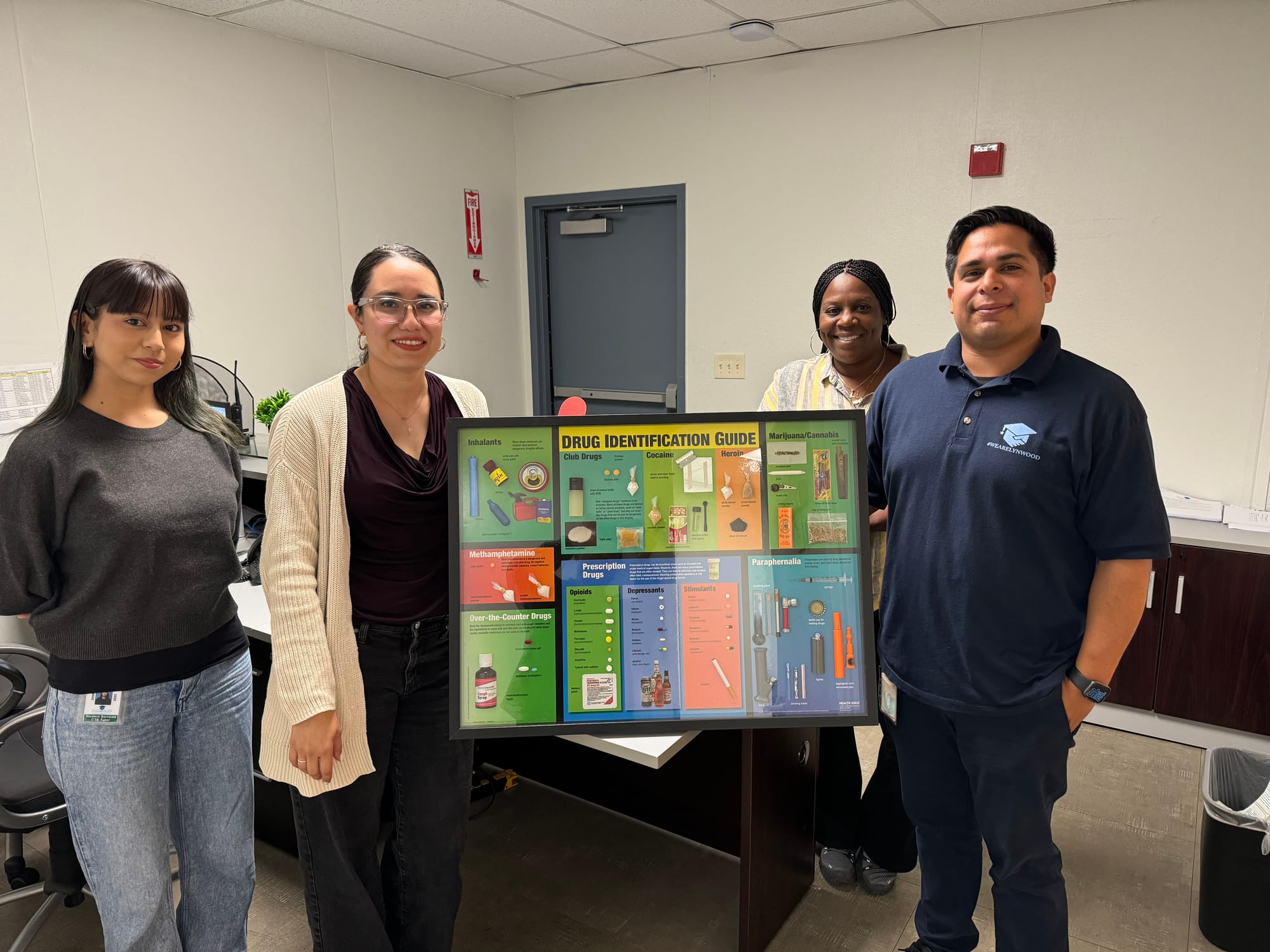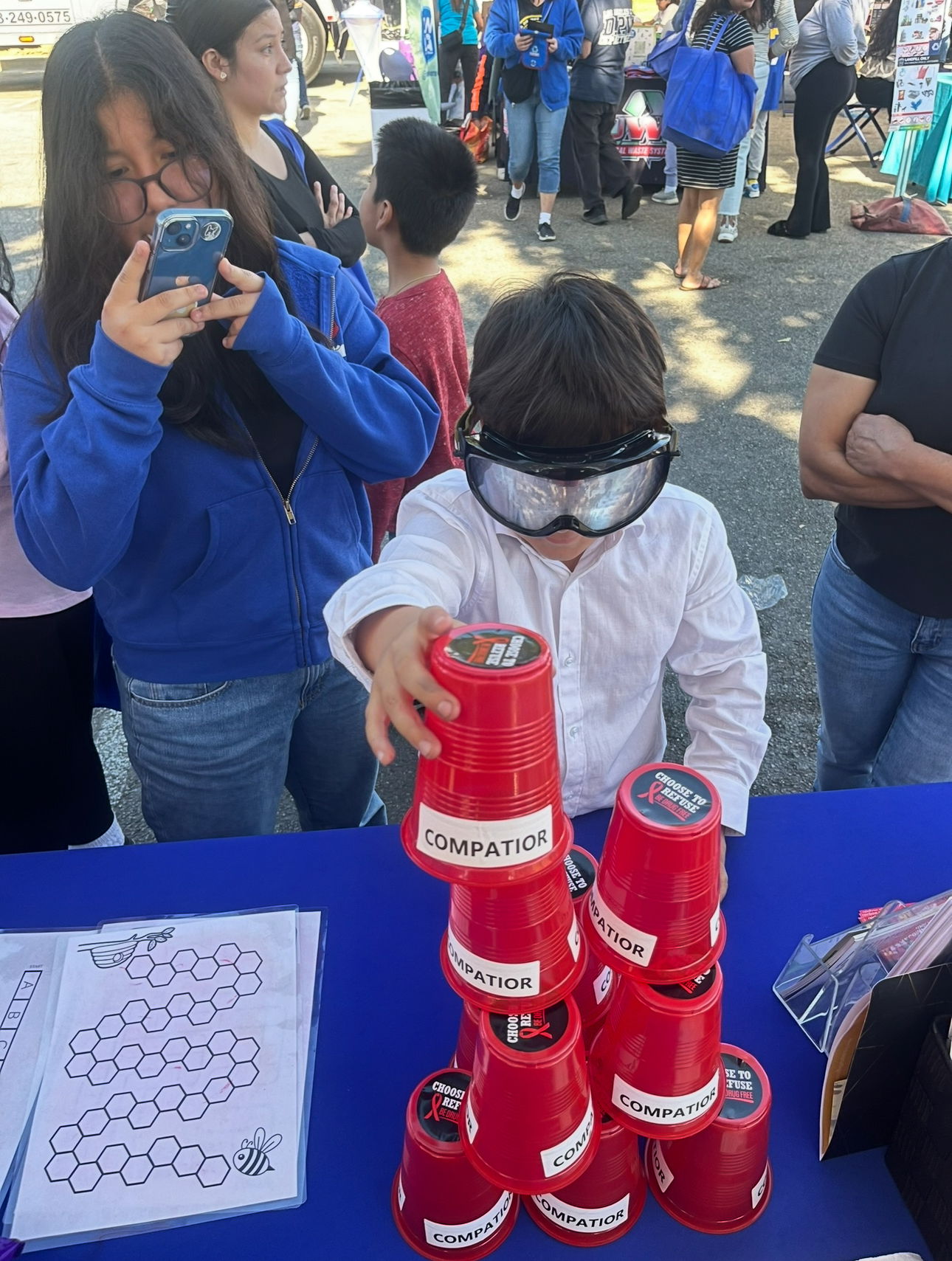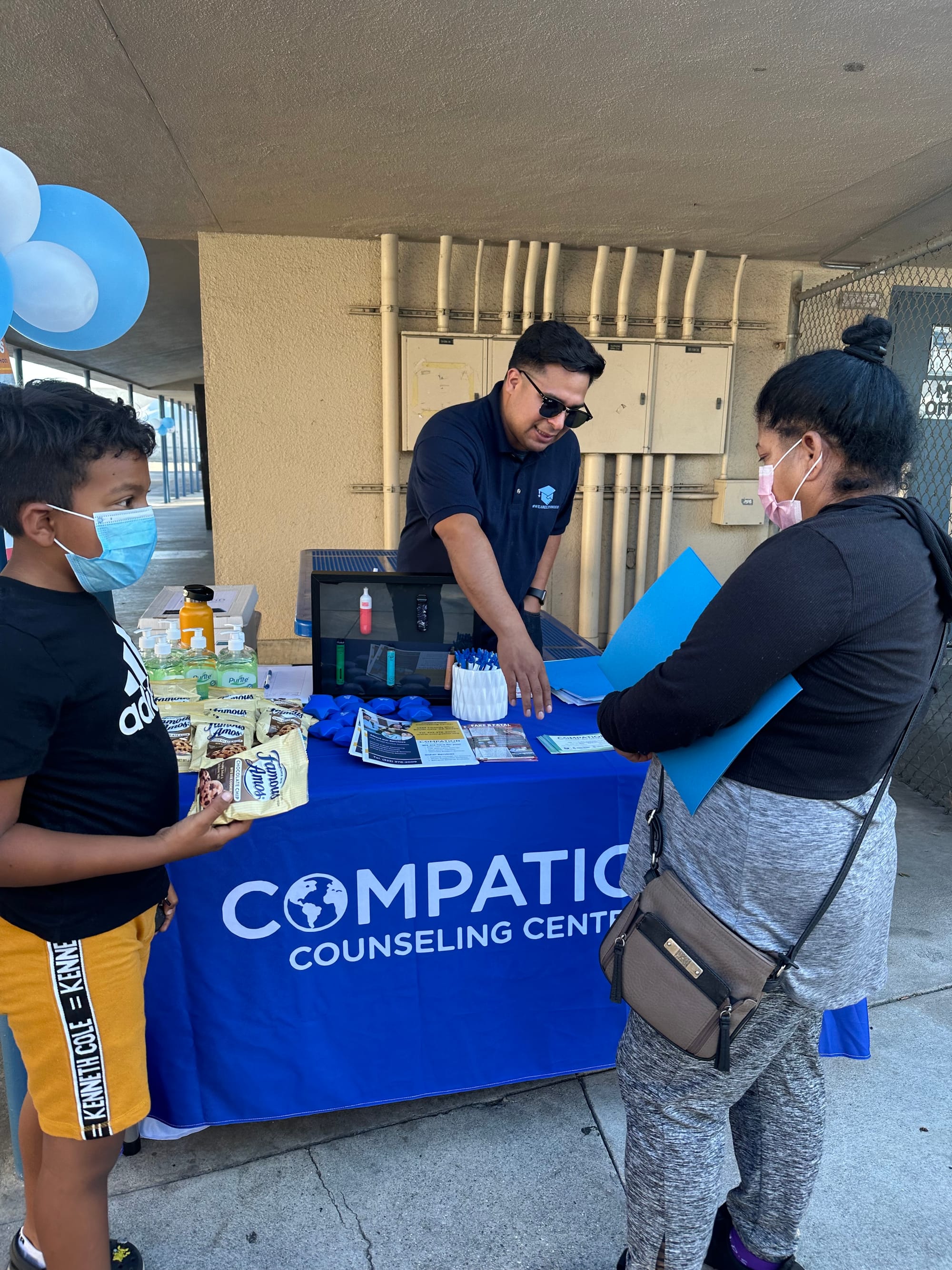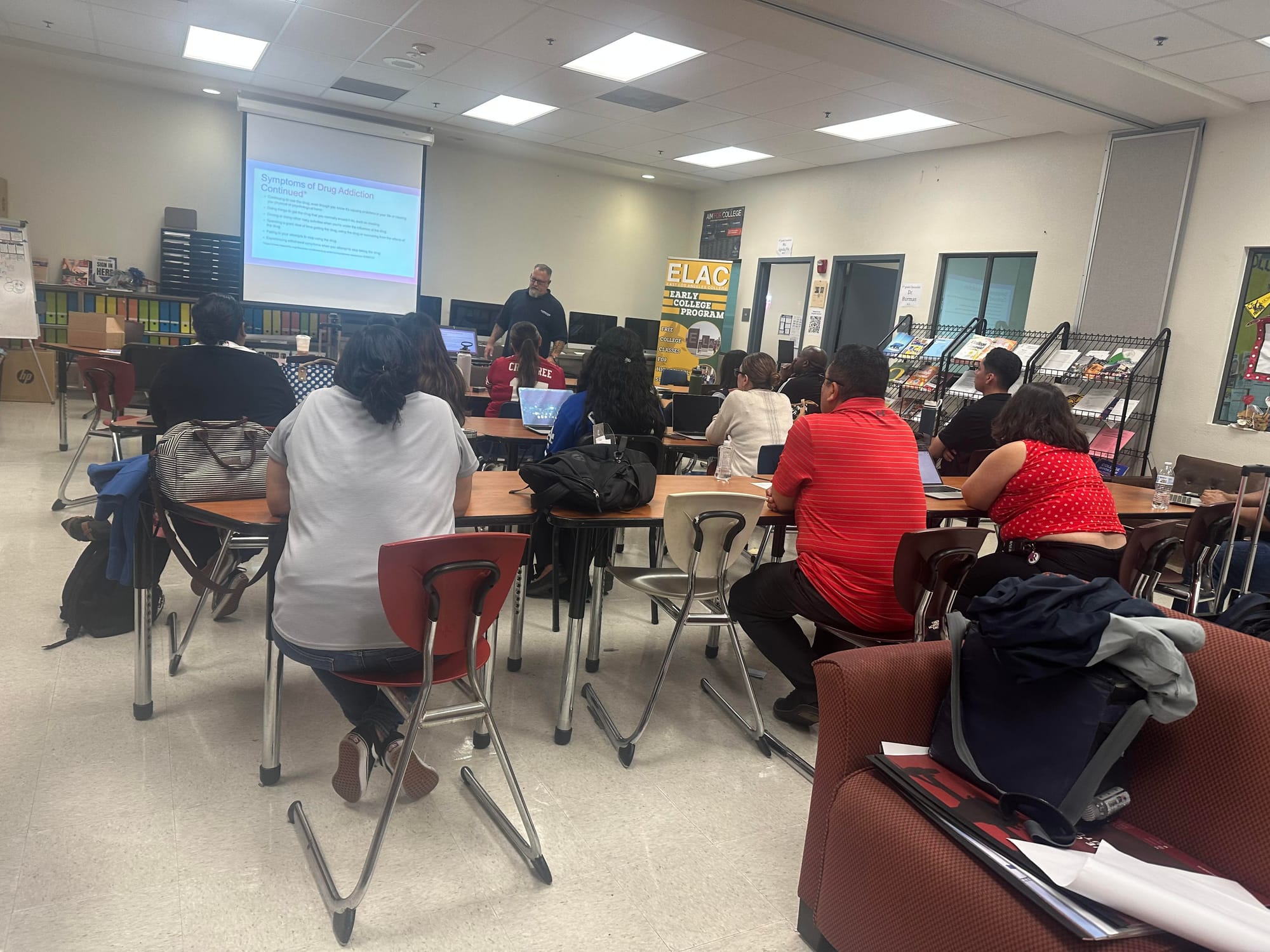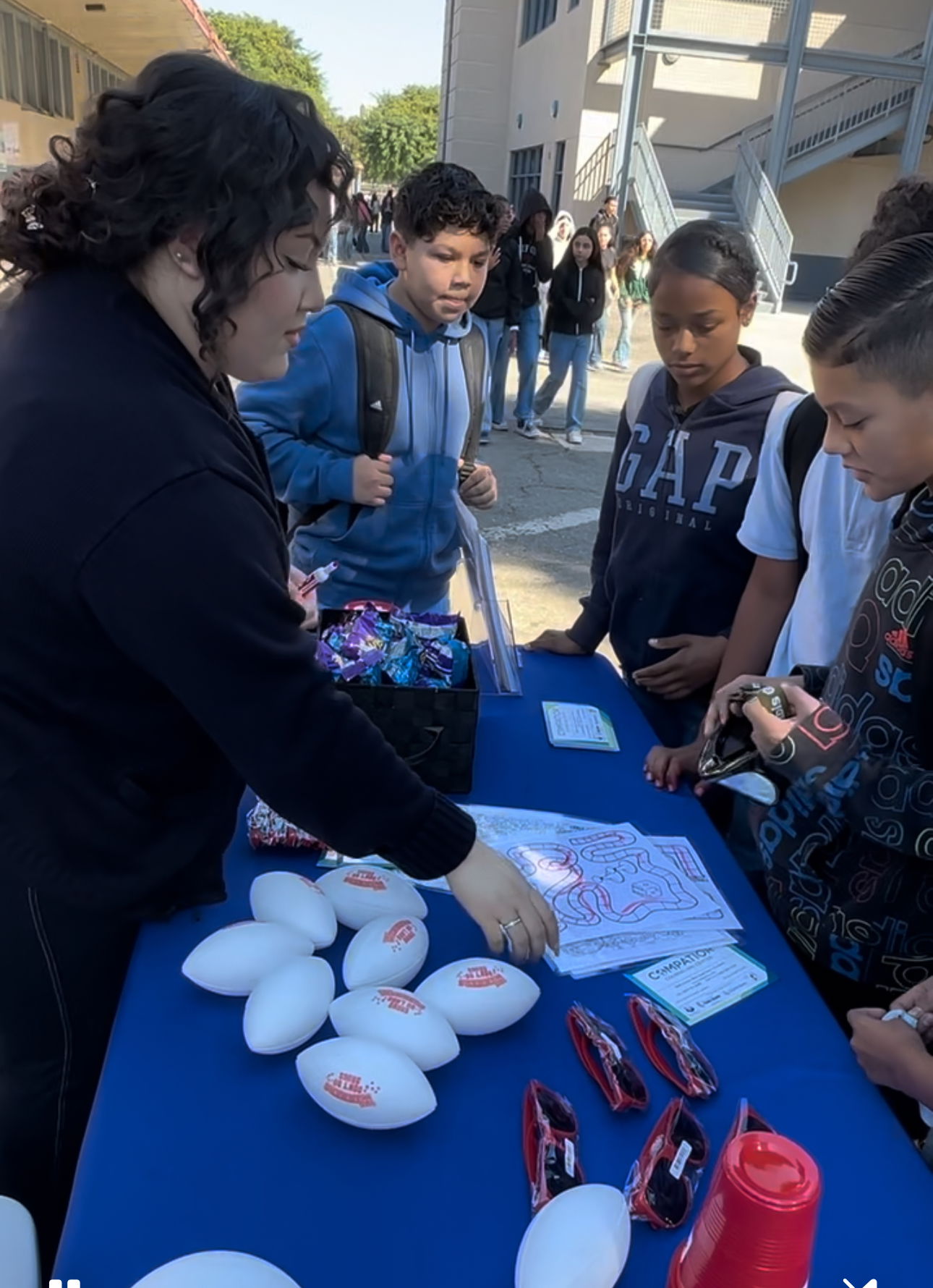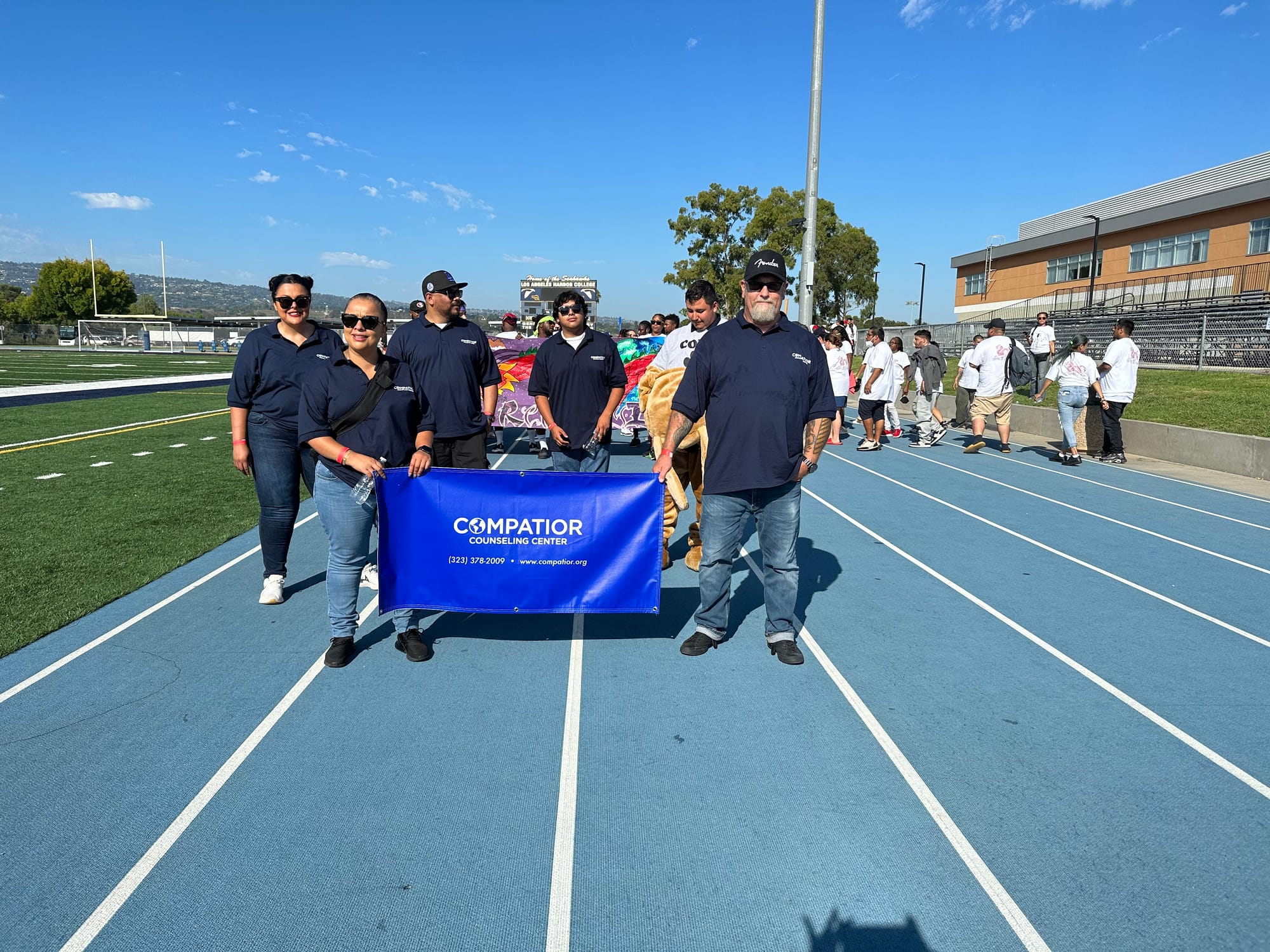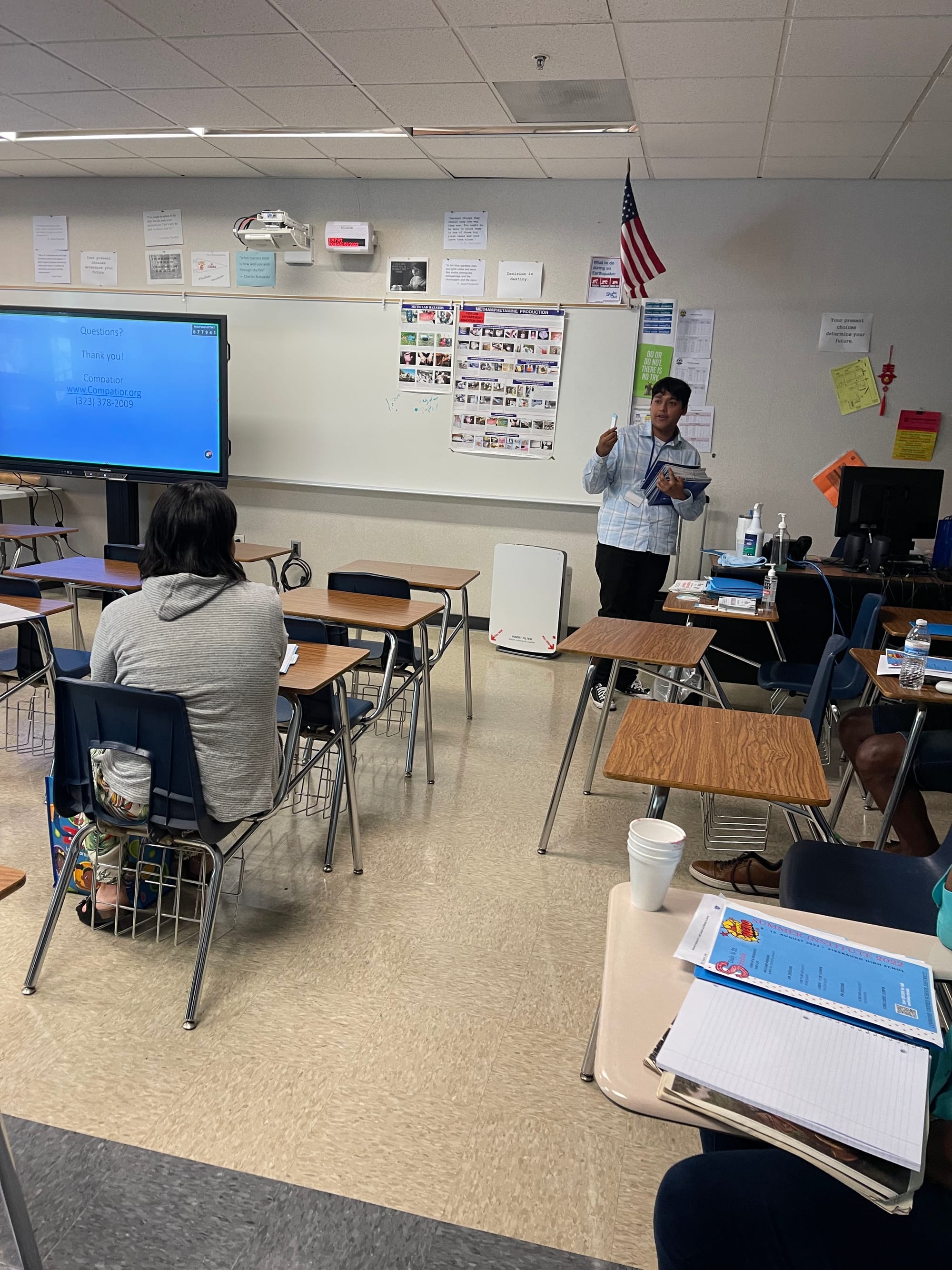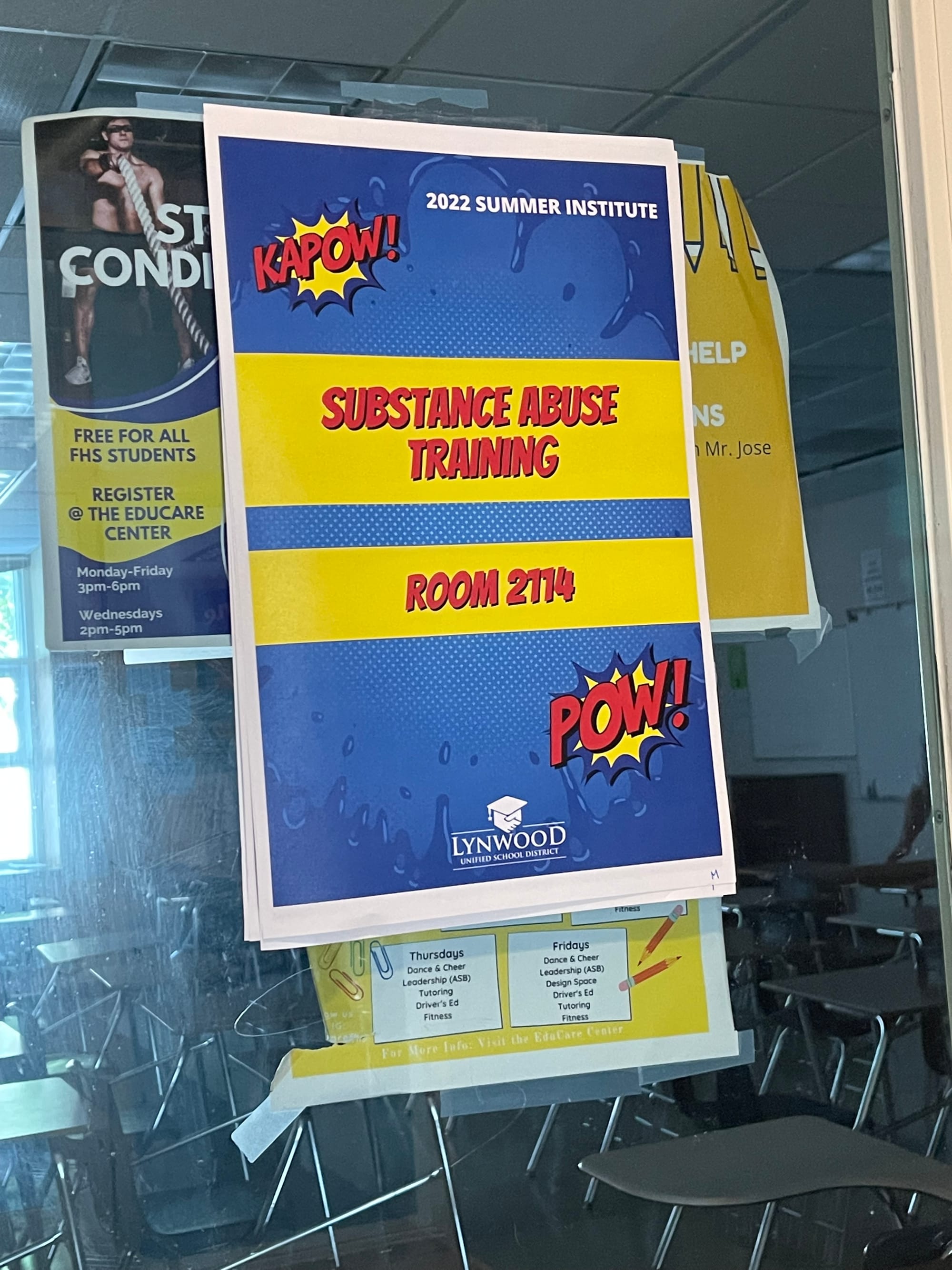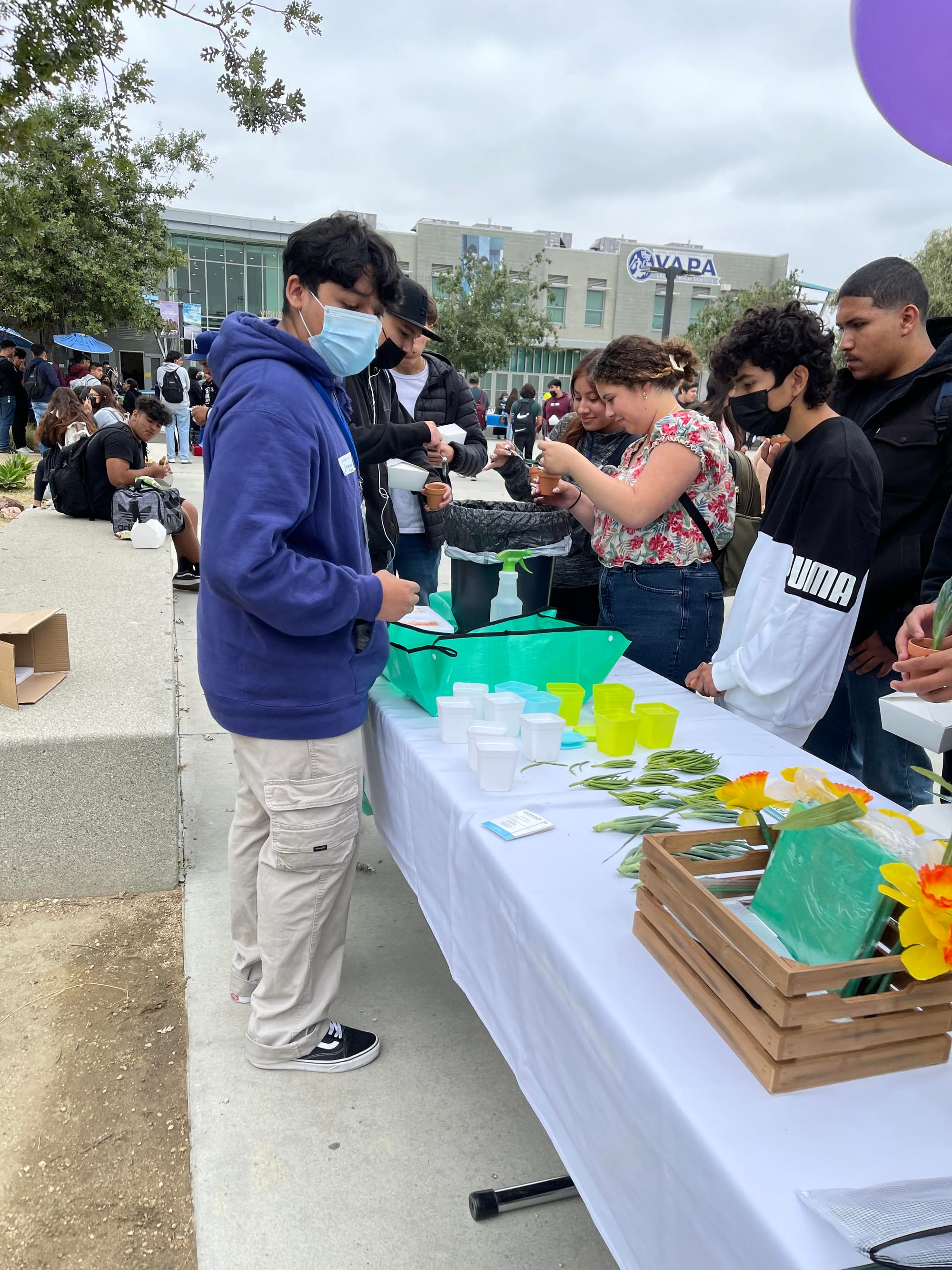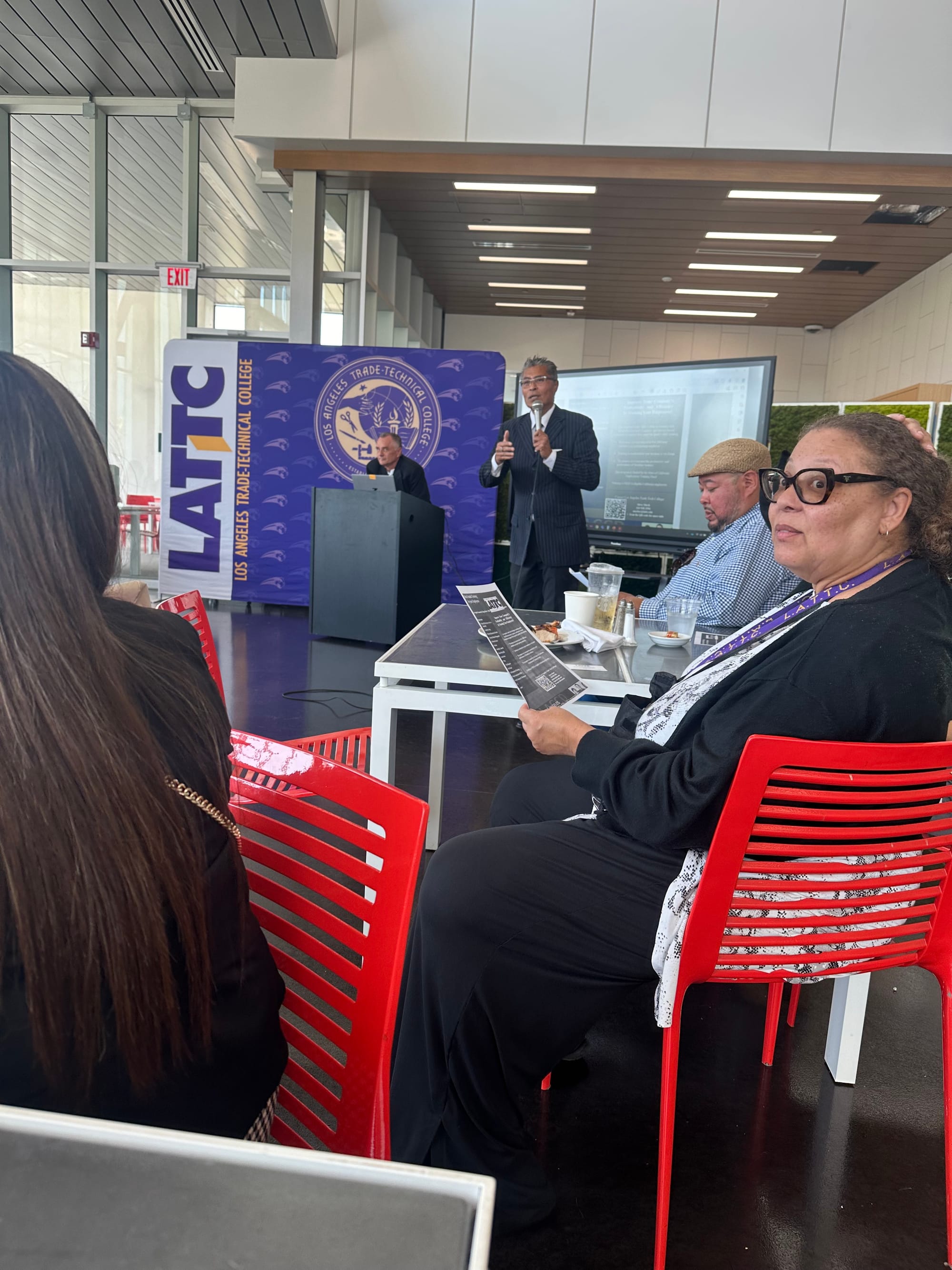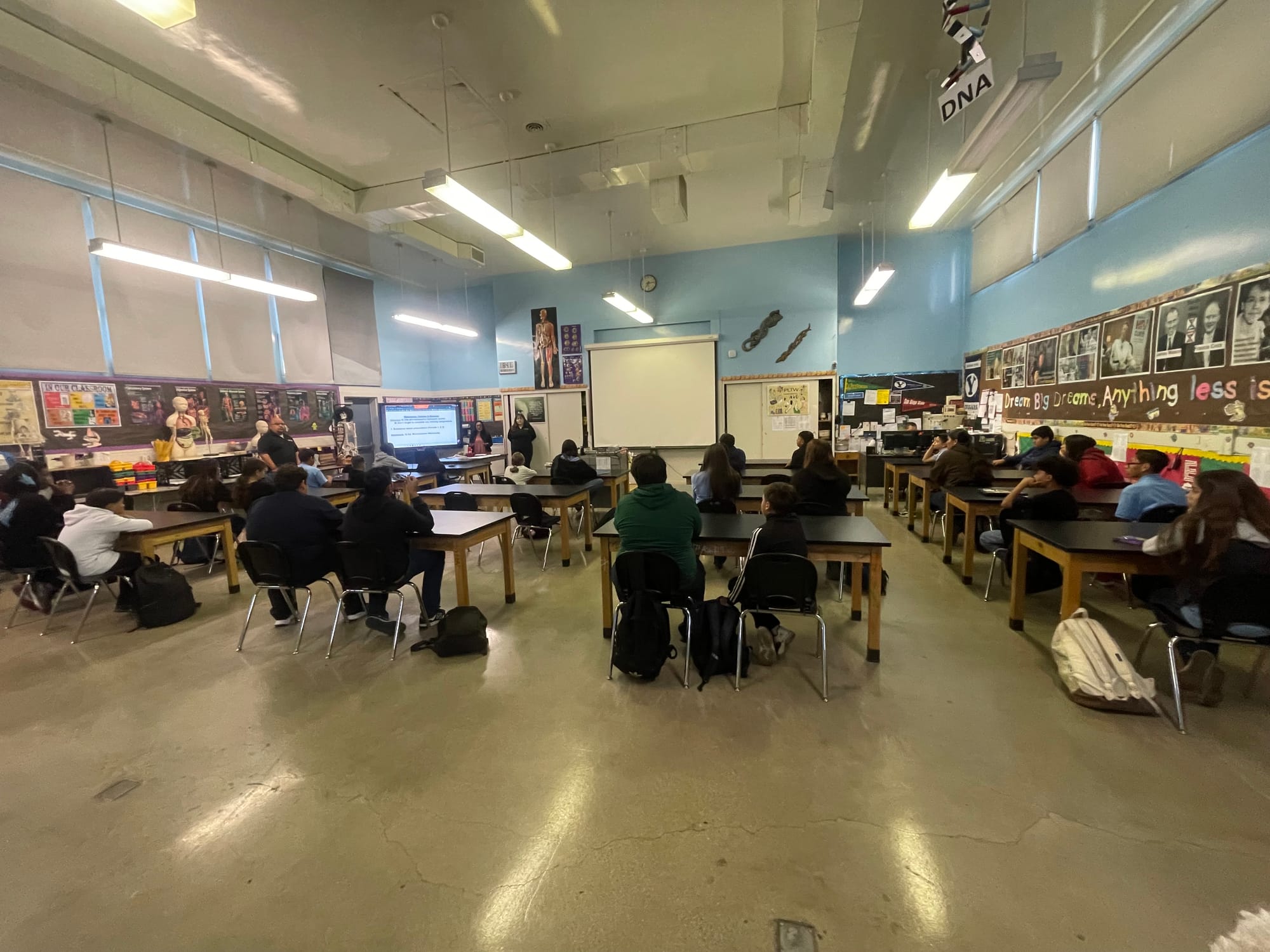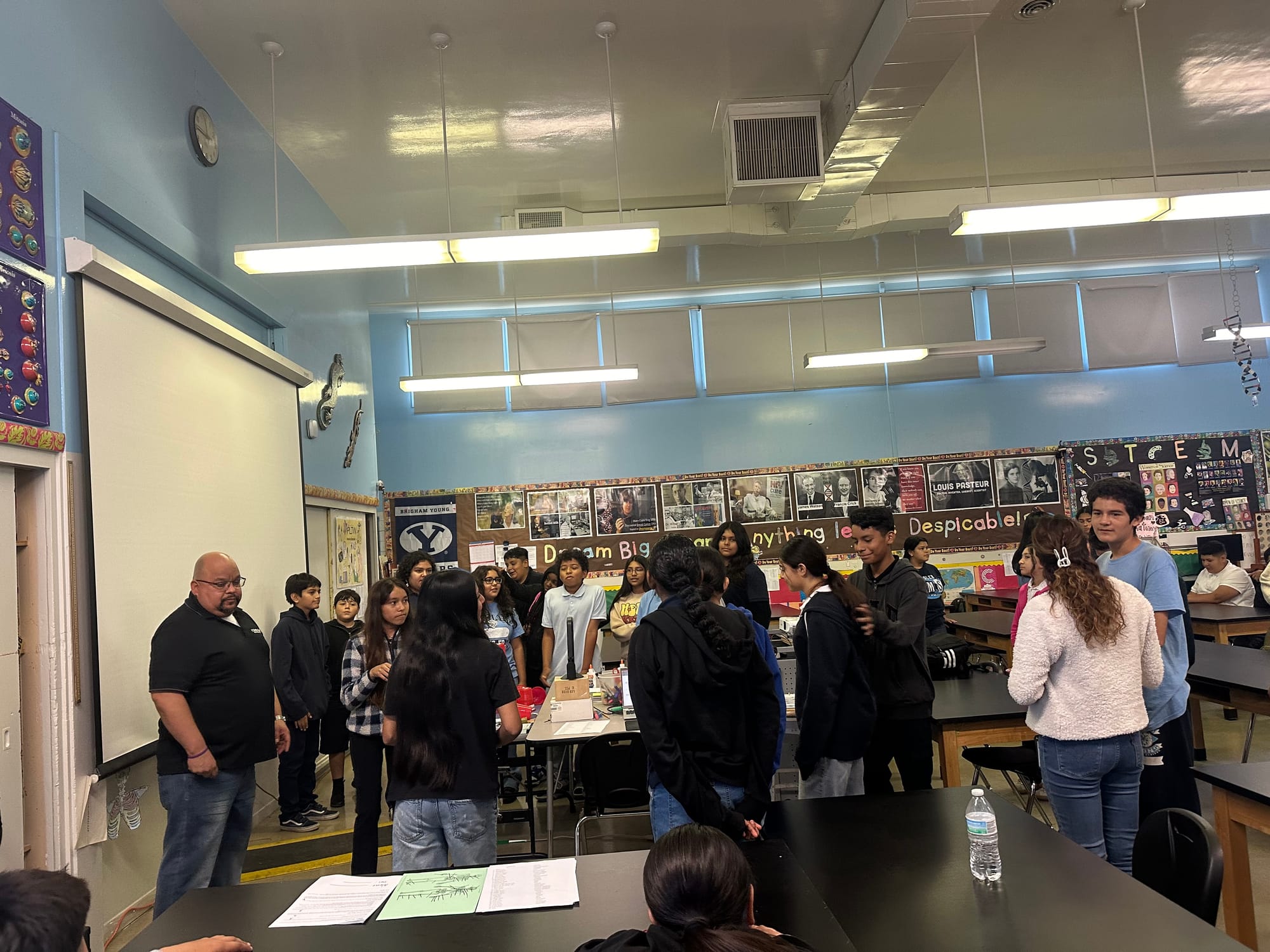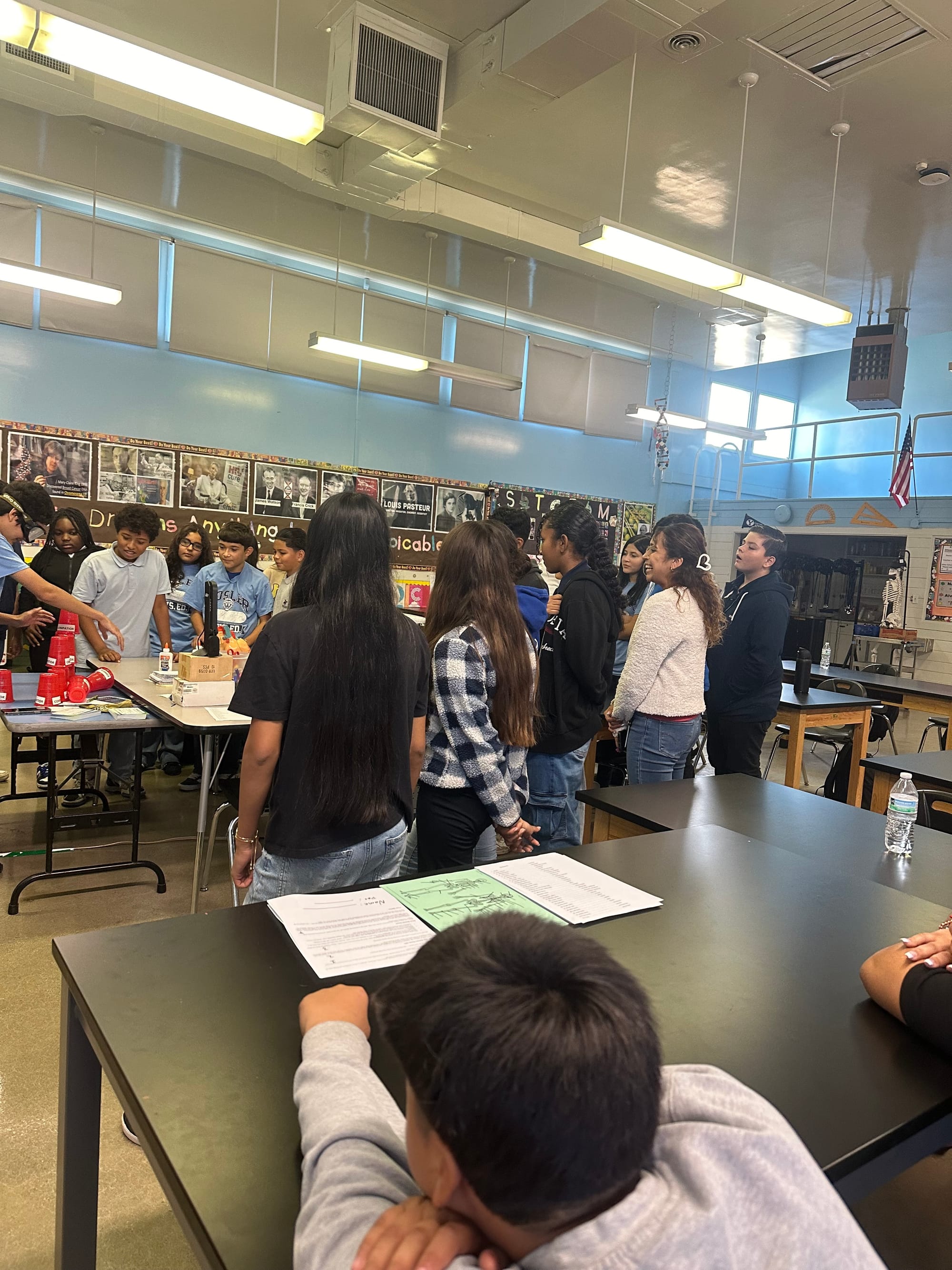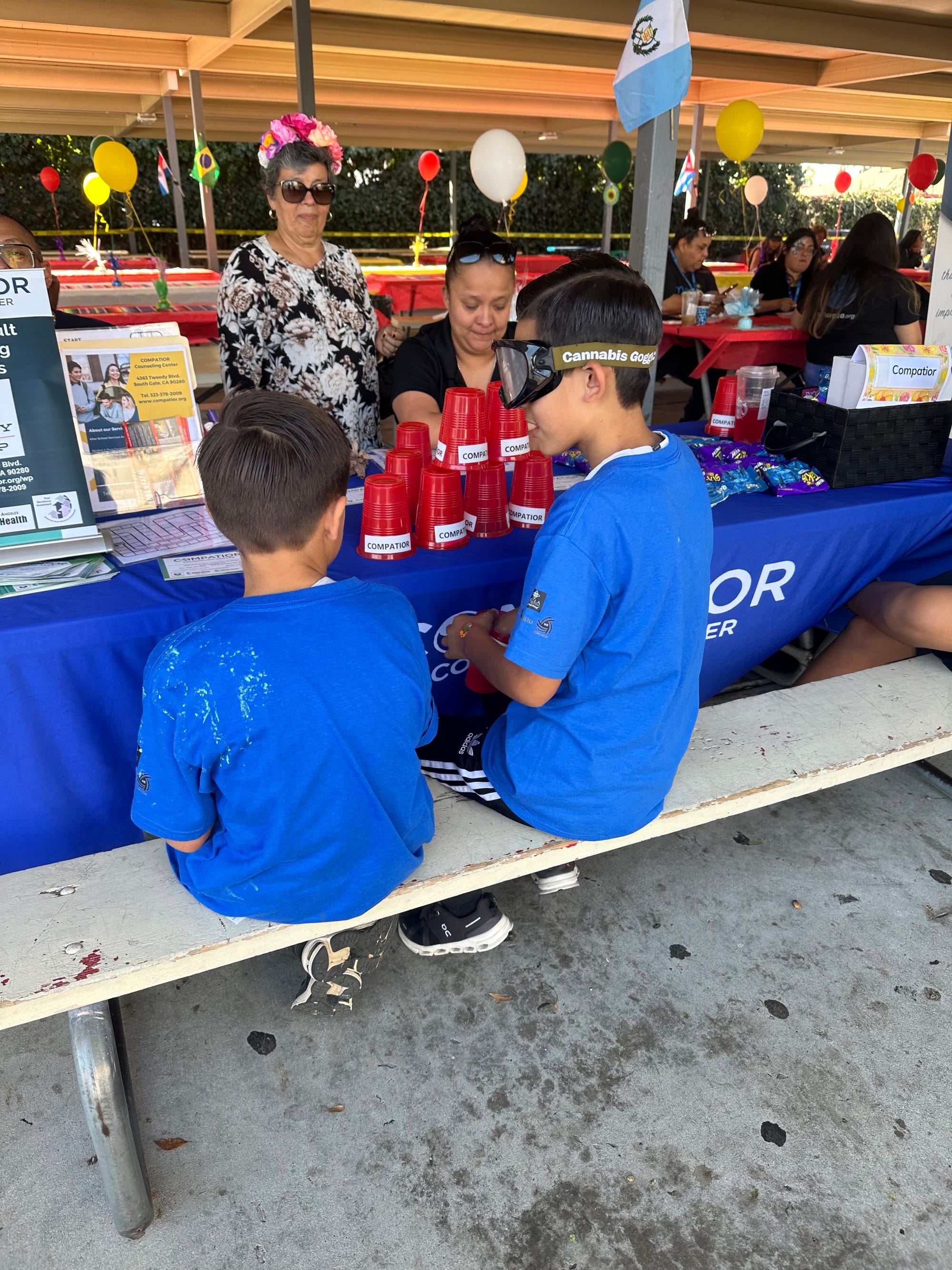WELCOME
Compatior is a premier substance use disorder treatment center, dedicated to providing personalized, evidence-based care for both youth and adults. We specialize in a comprehensive range of services, including outpatient substance use disorder (SUD) treatment, peer recovery support, recovery bridge housing, and re-entry programs—each designed to promote healing, resilience, and long-term recovery.
Our SUD treatment programs are meticulously tailored to address the unique needs of every individual, ensuring a compassionate and effective approach to recovery. With a structured and thoughtfully designed regimen of care, we empower clients to not only achieve lasting sobriety but also successfully reintegrate into their communities, paving the way for a healthier, more fulfilling life.
OUR MISSION
Our mission is to empower and support individuals within our community—specifically juveniles, young adults, and adults—by offering comprehensive counseling, mentorship, and educational services focused on substance use disorder prevention and recovery.
We are dedicated to serving those who are disadvantaged and at risk, helping them break free from cycles of substance abuse and criminal behavior while fostering opportunities for healthier, more fulfilling lives.
OUR GOALS & OBJECTIVES
- To empower clients in developing self-reliance and a strong work ethic through personalized clinical counseling and peer support programs.
- To offer prevention and support services that enable clients to achieve self-sufficiency and lead productive, fulfilling lives.
- To inspire and nurture a lifelong commitment to community involvement, encouraging clients to contribute positively to society.
Referrals
Youth Program Referral
This section is for referrals for youth under the age of 17. If you would like to refer a youth for services, please complete the attached referral form. Once filled out, you can either email the completed form to info@compatior.org or fax it to 213-395-9592. Please ensure that all required fields are filled out accurately to avoid any delays in processing the referral. The patient or legal guardian will be contacted within 2-4 business days of receiving the referral. If you have any questions or need assistance with the form, feel free to contact us at 323-378-2009 or info@compatior.org, and our team will be happy to assist you.
Learn MoreAdult Referral
Adult Referral Form This section is for referrals for adults 18 and over. Please ensure that all required fields are filled out accurately to avoid any delays in processing the referral. The patient will be contacted within 2-4 business days of receiving the referral. If you have any questions or need assistance with the form, feel free to contact us at 323-378-2009 or info@compatior.org, and our team will be happy to assist you.
Learn MoreRecovery Bridge Housing Referral
RBH Referral Form This form is for Recovery Bridge Housing (RBH), which is available to males ages 18 and over who are in need of housing and support as part of their recovery journey. By completing this form, you are initiating the referral process for the patient to receive housing and recovery services that can assist them in overcoming challenges they may be facing. To ensure a smooth and timely referral process, please make sure that all required fields on the form are completed accurately. Missing or incorrect information can lead to delays in processing, which may impact the patient’s access to services. Once the referral is submitted, the patient will be contacted within 2-4 business days to discuss next steps and to confirm the housing arrangements. It is important to note that timely submission and accuracy of the information will help expedite the referral process. If you have any questions or require further assistance while filling out the form, do not hesitate to reach out to us. You can contact us by phone at 323-378-2009 or via email at info@compatior.org. Our team is ready to help and ensure that the referral process is as smooth as possible. Thank you for your attention to detail and for helping us assist those in need of recovery housing.
Learn MoreAdult Programs
Youth Programs
Youth Outpatient
ODF (Outpatient Drug-Free): Level of Care: ODF programs are a non-intensive outpatient treatment option. They are designed for individuals who have a substance use disorder but do not require a highly structured or intensive treatment program. Focus: Provides individual counseling, group therapy, education on addiction, and support for maintaining sobriety. The approach is generally less intensive than IOP and might be used for those with a less severe addiction or as a step-down from more intensive programs.
Early Intervention Services for Substance Use
Early Intervention Services for Substance Use (EIS) for youth under 17 years of age are designed to identify and address substance use problems in young people at an early stage, before they develop into more serious addiction or long-term health issues. These services aim to intervene early to prevent further harm, reduce the progression of substance abuse, and improve overall outcomes for the youth involved. Early intervention is crucial for preventing the escalation of substance use, promoting healthier behaviors, and supporting the well-being of young people.
Understanding Early Intervention for Youth
Purpose: Early intervention seeks to address substance use behavior before it becomes entrenched. It aims to provide support and treatment to young people who are showing signs of substance misuse but may not yet meet the criteria for a formal addiction diagnosis. This service is often offered when a youth is experimenting with or beginning to misuse substances but has not developed a chronic substance use disorder. Key Principles: Early intervention involves a holistic approach to youth development, focusing not just on the substance use itself, but on underlying factors such as mental health, family dynamics, peer influences, and environmental factors that might contribute to the behavior.
Recovery Bridge Housing
Los Angeles
Men ages 18 and over
Our Recovery Bridge Housing (RBH), located in the City of Los Angeles County, offers temporary, supportive housing for individuals facing housing insecurity who are enrolled in outpatient Substance Use Disorder (SUD) treatment programs.
Sober living environment
RBH
RBH provides a safe, sober living environment designed to help individuals stabilize and build the skills needed to maintain long-term recovery. The program offers comprehensive support, including case management, life skills training, and connections to additional recovery resources, guiding individuals on their journey toward self-sufficiency and sustained sobriety.
Safe environment
Contact us today 323-378-2009
Our RBH is specifically tailored for men aged 18 and over who are committed to working on long-term goals with the ultimate aim of becoming self-sufficient and maintaining sobriety. To make a referral or inquire about our RBH housing, please feel free to reach out to us at 323-378-2009. You can also conveniently complete our online referral form, which is available on our website. Our team is happy to assist you with any questions you may have regarding the housing options and process.
Re-Entry Services
Our Re-Entry Services
Supporting our Returning Citizens
Our Re-Entry Program is designed to support individuals who have been incarcerated, helping them successfully reintegrate into society and the workforce. Through a holistic approach, we combine substance abuse treatment, counseling, and skills development with job readiness training, resume building, and placement assistance. This dual focus on recovery and employment addresses both immediate and long-term needs, guiding participants toward stability and a successful future. As part of the California Workforce Development Board's (CWDB) Helping Justice-Involved Reenter Employment (HIRE) initiative, in collaboration with the South Bay Workforce Investment Board (SBWIB), this no-cost program is available to justice-involved youth and adults seeking employment and career education. By providing comprehensive support in recovery and career development, our program helps participants overcome personal barriers, achieve lasting growth, and transition into stable employment with confidence.
Certifications
Certification and Approvals
Our Outpatient Substance Use Disorder (SUD) treatment programs are certified by the California Department of Health Care Services (DHCS) and approved by the Los Angeles County Department of Public Health's Substance Prevention and Control. This ensures our programs meet state and local standards for quality, effective care, and provide evidence-based treatment for individuals seeking recovery.
State of California
Department of Health Care Services
Los Angeles County Department of Public Health
Substance Abuse Prevention and Control
Presentation Request
We provide comprehensive drug awareness and education presentations designed to empower individuals and communities with the knowledge and tools needed to combat the rising issue of substance abuse.
Our presentations are tailored for community-based organizations, schools, and employers, and aim to foster a deeper understanding of the dangers associated with various drugs. Through a combination of engaging, interactive presentations and informative visual aids, we ensure that participants not only learn to identify dangerous substances but also understand the significant impact they can have on personal health, well-being, and safety.
These sessions cover a wide array of topics, including the physical, psychological, and social effects of drug use, as well as the signs and symptoms of drug abuse. Our interactive approach encourages active participation and open dialogue, allowing individuals to ask questions, share experiences, and gain a more personal connection to the subject matter. We emphasize practical knowledge, helping attendees recognize the warning signs of substance abuse in themselves, their loved ones, or their colleagues, and how to respond appropriately. In addition to raising awareness, we provide valuable resources on how to seek help.
This includes information on local support groups, helplines, rehabilitation centers, and professional counseling services, ensuring that those who are struggling with substance abuse have access to the necessary tools for recovery.
By offering these educational resources, we aim to create informed, supportive environments where individuals feel empowered to make healthier choices and can confidently reach out for help when needed.
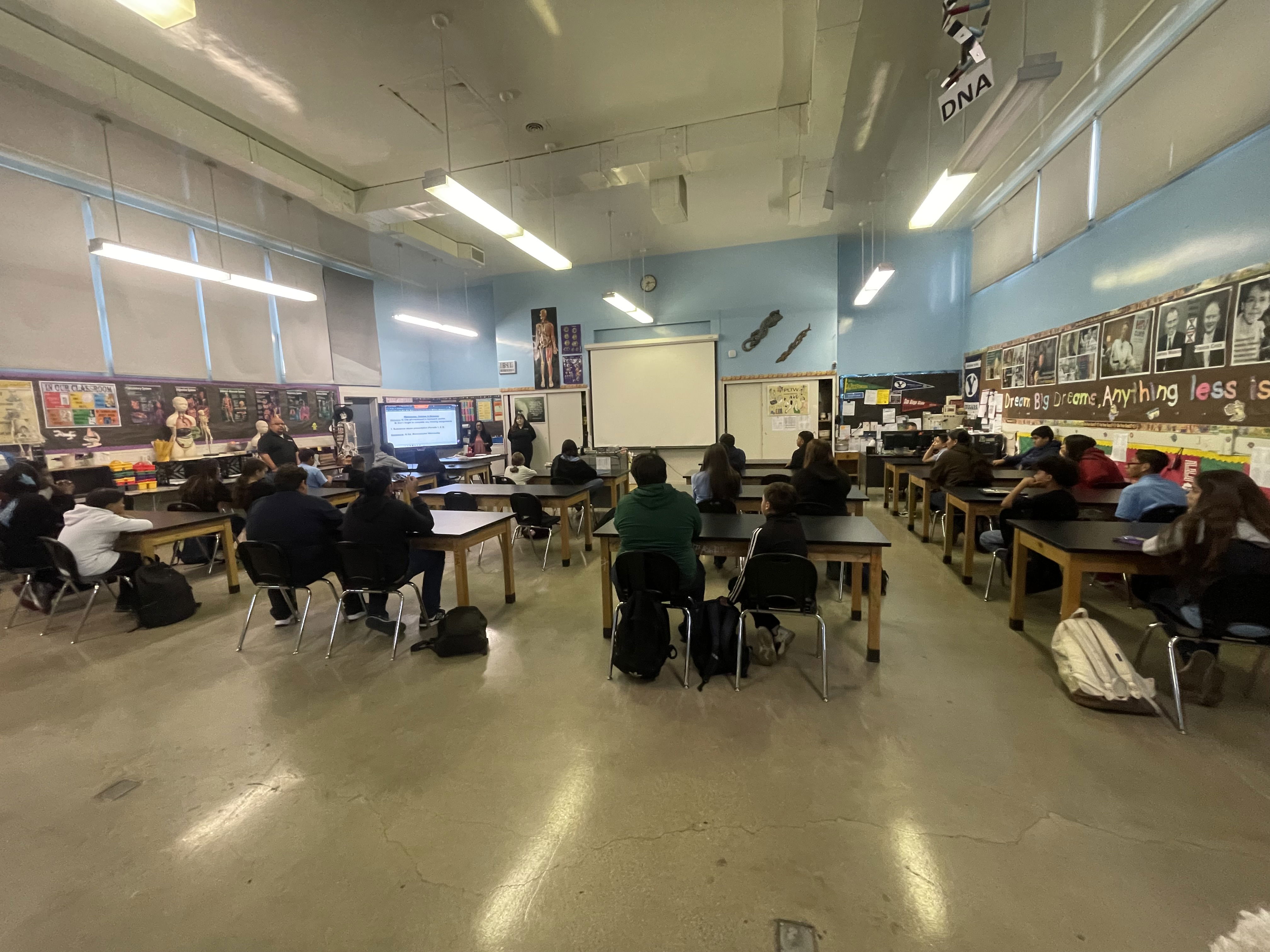
Employment
Certified Substance Use Disorder Counselor
We are seeking a dedicated and compassionate Substance Abuse Counselor to join our team. The ideal candidate will be responsible for providing support and guidance to individuals struggling with substance use disorders. This role involves conducting assessments, developing treatment plans, and facilitating both individual and group therapy sessions. The Substance Abuse Counselor will play a crucial role in helping clients achieve recovery and improve their overall mental health.
Responsibilities:
Conduct comprehensive assessments and diagnostic evaluations to determine the needs of clients.
Develop individualized treatment plans based on client assessments and goals.
Provide addiction counseling using evidence-based practices, including Cognitive Behavioral Therapy (CBT),
Facilitate group therapy sessions to promote peer support and shared experiences among clients.
Implement crisis management strategies to address immediate client needs effectively.
Collaborate with other healthcare professionals to ensure a holistic approach to client care.
Monitor client progress and adjust treatment plans as necessary to meet evolving needs.
Educate clients and their families about substance use disorders, recovery processes, and available resources.
Requirements:
Substance Use Disorder Counselor (Certified)
Strong understanding of mental health counseling principles and practices.
Reliable Transportation.
Valid Drivers License.
Experience in addiction counseling with demonstrated ability in crisis management.
Knowledge of group therapy techniques and experience facilitating therapeutic groups.
Excellent communication skills, both verbal and written, with the ability to build rapport with clients.
Commitment to ongoing professional development in the field of substance abuse treatment.
Join our team of dedicated professionals committed to making a difference in the lives of those affected by substance use disorders.
Your expertise can help guide individuals on their journey toward recovery.
Job Types: Full-time, Part-time
Pay: $47,840.00 - $52,000.00 per year
Expected hours: No less than 35 per week
Work Location: Onsite and field based
Please upload resume when applying.
Entry Level Substance Use Disorder Counselor
Registered Substance Abuse Counselor
Bilingual English and Spanish a must
Encourage clients to express their feelings and discuss what is happening in their lives, helping them to develop insight into themselves or their relationships.
Counsel clients or patients, individually or in group sessions, to assist in overcoming dependencies, adjusting to life, or making changes.
Guide clients in the development of skills or strategies for dealing with their problems.
Develop and implement treatment plans based on clinical experience and knowledge.
Pay: DOE
Full time and Part time positions available.
Please upload resume when applying
Contact
- 4363 Tweedy Blvd, South Gate, California, 90280
- +1-323-378-2009
- info@compatior.org
- Mon-Thurs - 09:00 am-7:00 pm Fri. 9:00 am - 3:00 pm
